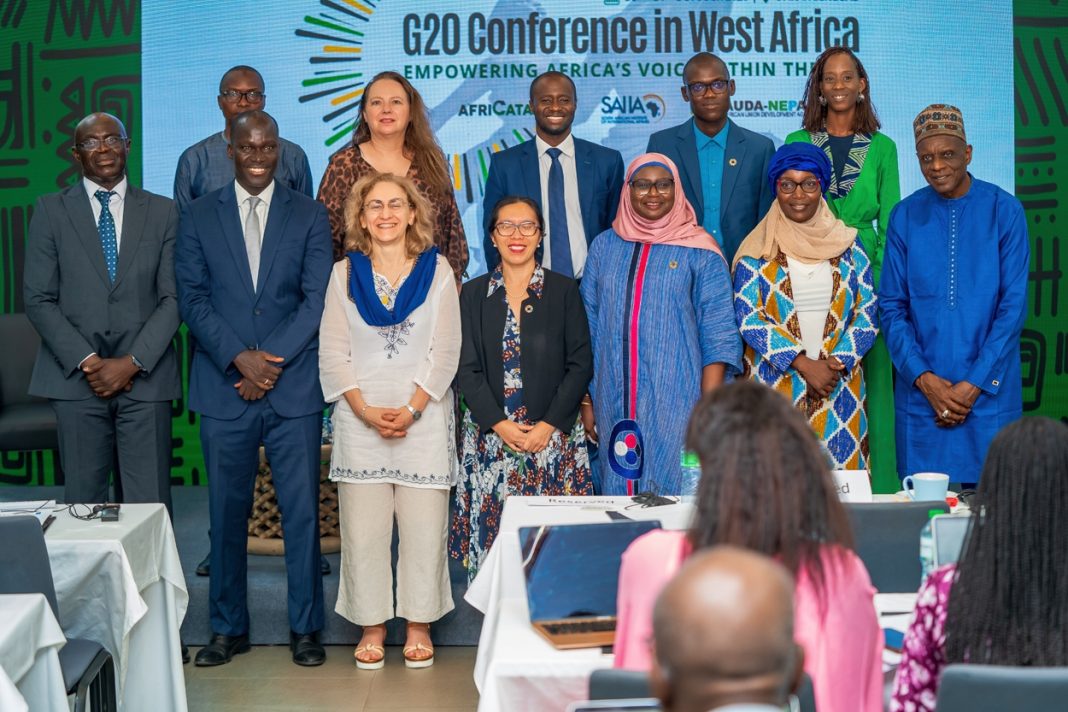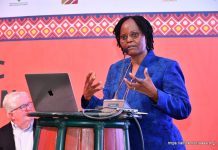By Dickens Okinyi
African policymakers, economists, and development partners have called for stronger regional coordination and strategic engagement as the continent’s influence in global economic governance continues to grow.
They were speaking during a two-day G20 Conference in West Africa: Empowering Africa’s Voice Within the G20, held in Senegal’s capital, Dakar. The conference underscored the importance of coordinated African engagement ahead of South Africa’s G20 presidency, the Fourth International Conference on Financing for Development (FfD4), and United Nations Conference of Parties on Climate Change (COP30).
Elizabeth Sidiropoulos, Chief Executive of SAIIA, emphasized the significance of the African Union (AU)’s permanent seat in the G20, describing it as a chance to translate Africa’s growing political presence into measurable outcomes.
“This is only the second year that the African Union sits as a permanent G20 member,” she said. “It is a unique moment to elevate African issues in global dialogue and to bring these conversations home across the continent. We are entering a period where consensus alone is no longer enough. Africa must secure financing for the SDGs by 2030 and respond effectively to the growing impacts of climate change.”
The conference examined key financial challenges facing the continent, including debt sustainability and the cost of capital. UNDP launched a report on debt sustainability in West Africa, providing policy-based recommendations for enhancing fiscal resilience and improving access to affordable finance.
Catherine Phuong, United Nations Development Programme (UNDP)’s Resident Representative in Senegal, said the time had come to convert commitments into implementable actions.
“We want to identify financing solutions grounded in policy, evidence, and execution,” she said. “Political commitments must translate into measurable outcomes. Aligning incentives between policymakers, markets, and think tanks is essential to lowering Africa’s cost of capital and expanding fiscal space.”
The second day of discussions focused on addressing Africa’s high cost of borrowing and strengthening its financial ecosystems through domestic capital market reforms and regional development initiatives.
Participants examined the Africa Credit Ratings Initiative, developed by UNDP and AfriCatalyst, which could save the continent an estimated $74.5 billion annually lost due to biased global credit ratings.
A high-level roundtable that included representatives from the Trade and Development Bank Group (TDB) and the Islamic Development Bank (IsDB) explored ways to expand affordable and predictable development financing.
Speakers noted that Africa’s debt-to-GDP ratio now exceeds 60 percent, while the debt-to-export ratio stands above 160 percent, constraining investment in infrastructure, social services, and climate adaptation.
Dr. Bartholomew Armah, Chief Economist at AUDA-NEPAD, warned that the region’s debt burden continues to undermine growth prospects.
“Sub-Saharan Africa’s external debt stock reached $863 billion in 2023, equivalent to 169 percent of total exports,” he said. “With average bond yields at 9.8 percent, debt-service costs now consume 16 percent of export revenues, a significant drain on development.”
Dr. Armah added that addressing illicit financial flows—estimated to cost the continent $88 billion each year—and operationalizing regional financing mechanisms such as the African Monetary Fund and African Stability Mechanism are crucial to restoring fiscal stability.
Participants agreed that improving Africa’s access to capital will require structural reforms at both regional and international levels. They called for fairer credit rating practices, stronger domestic capital markets, more efficient regional development banks, and operationalization of the Africa Credit Ratings Initiative to enhance debt sustainability.
Representing South Africa’s G20 presidency, Liana Hattingh from the Department of International Relations and Cooperation (DIRCO) reaffirmed the country’s commitment to an inclusive and reform-driven agenda.
“South Africa’s presidency has prioritized four areas aligned with the G20’s founding mandate: promoting sustainable and inclusive growth, strengthening disaster resilience, ensuring debt sustainability for low-income countries, and mobilizing finance for a just energy transition,” she said. “Harnessing Africa’s critical minerals for inclusive development is equally vital. Local communities must be the main beneficiaries of the energy transition.”
Dr. Patrick Ndzana Olomo, Acting Director for Economic Development, Integration and Trade at the African Union Commission, highlighted the outcomes of the Lomé Declaration on debt, adopted earlier this year.
“The African Union Commission has taken a clear, united, and forward-looking position on Africa’s debt challenge,” he said. “Our ongoing efforts are driven by the conviction that Africa must rethink and reposition how discussions on debt sustainability are framed and owned.”
The conference concluded with a shared call for stronger regional coherence and alignment in representing African interests across global forums.
“Engagement is not enough,” Dr. Armah said. “We need strategic coherence and relevance to move from participation to tangible outcomes.”
The Dakar meeting underscored that Africa’s growing presence in global financial governance must now be matched by policy unity, institutional coordination, and practical reforms to ensure that the continent’s voice leads to measurable progress for its people.







